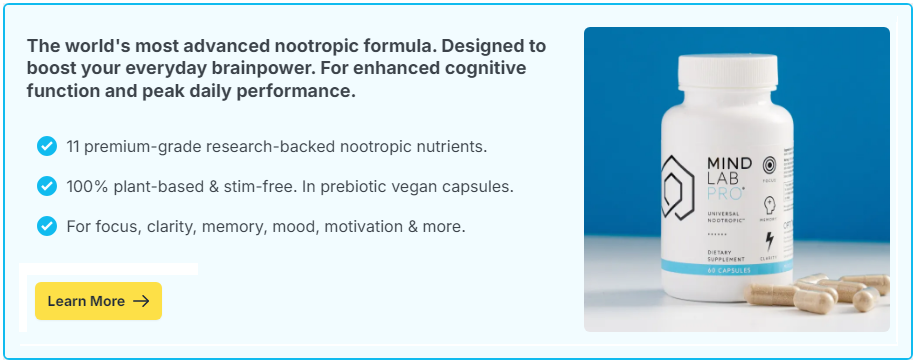
Imagine this: you have a critical project deadline, and you’re staring at a blank page, waiting for the spark of inspiration to light. Many people, from students to professionals, reach out for coffee or energy drinks to give them a mental boost. But what if there was a special supplement designed specifically to help with brain functions like creativity? Enter nootropics, substances that some people swear by for enhancing cognitive abilities. But can they really make you more creative?
Contents
What Are Nootropics?
Nootropics, often referred to as “smart drugs” or cognitive enhancers, are substances that can potentially improve brain performance. Although the idea might sound like something out of a science fiction movie, nootropics are very real and come in all shapes and sizes, including prescription drugs, dietary supplements, and even certain foods. They’re designed to boost memory, focus, mental clarity, and sometimes, creativity.
How Nootropics Work in the Brain
Our brain is an incredibly complex network of neurons that communicate via synapses using chemical messengers called neurotransmitters. Nootropics work by impacting these neurotransmitters, altering brain activity in specific ways. Here’s how they might help:
- Dopamine Boost: Some nootropics enhance dopamine production, the “feel-good” chemical, which is linked to motivation and mood, potentially fostering a more favorable environment for creative thinking.
- Promoting Neurotransmission: Nootropics can help improve the efficiency of neurotransmission, making communication between neurons faster and more effective. This might aid quick thinking and problem-solving.
- Stimulating Brain Waves: Some nootropics are thought to influence brain waves, including alpha waves, which are associated with relaxation and creativity.
Popular Nootropics and Their Effects
There are numerous nootropics available, each claiming different benefits. Let’s look at a few popular ones and their potential impact on creativity:
Modafinil
Originally developed to treat sleep disorders, Modafinil is known for its ability to increase alertness and combat fatigue. Users often report experiencing enhanced focus and problem-solving skills. While there’s limited research on its direct impact on creativity, the improved cognitive function it offers could indirectly support creative endeavors.
Caffeine
Yes, your morning coffee is indeed a nootropic! Caffeine blocks inhibitory neurotransmitters in the brain, leading to greater stimulation. This results in increased energy and focus, which can help create a mental space where creativity flows. However, relying heavily on caffeine may lead to dependency and diminish its effectiveness over time.
L-Theanine
Often found in tea, L-Theanine is legendary for its calming effects. It’s believed that when taken with caffeine, it can smooth the jittery effects while keeping the enhanced focus, potentially aiding creative work by improving mood and clarity of thought.
Omega-3 Fatty Acids
Omega-3 supplements, widely known for their brain health benefits, support neuron health and enhance communication between brain cells. This improved brain function can help in creative thinking, making these supplements a favorite among nootropic enthusiasts.
The Science Behind Creativity
To understand how nootropics might enhance creativity, we should first examine what creativity involves. At a basic level, creativity is the ability to generate new ideas or concepts and make connections between seemingly unrelated things.
Creativity is primarily linked to specific areas of the brain. The prefrontal cortex is associated with planning and decision making, while the default mode network becomes active during mind-wandering, a state often linked with creative thinking. Moreover, the right hemisphere of the brain, in general, is thought to be more involved in creative tasks.
Brain chemicals, like dopamine and serotonin, also play a role in fueling creativity by regulating mood and motivation. Thus, nootropics that influence these chemicals could potentially enhance creative abilities.
Does Science Support Nootropics for Creativity?
So, how solid is the evidence that nootropics can actually make you more creative? The truth is, it’s a mixed picture. While some studies suggest that cognitive enhancers might improve certain aspects of brain function that are indirectly related to creativity, direct evidence is scarce and often anecdotal.
For instance, research into Modafinil mostly highlights its positive impact on focus and alertness rather than creativity per se. Similarly, the well-documented ability of caffeine to enhance alertness doesn’t directly translate to creative breakthroughs.
However, anecdotal evidence—personal stories and testimonials from people who use nootropics—often suggest these substances might help open the window of creativity slightly wider. Individuals report increased mental clarity and a reduction in the mental barriers that occasionally obstruct creative thinking. Though promising, such reports lack the robust scientific backing that comes from controlled studies.
Potential Risks and Considerations
While nootropics can be intriguing, they aren’t without their risks. Like all supplements, they can have side effects or interact with other medications. Here’s what to consider:
- Dependency: Continuous usage can lead to tolerance, meaning you’d need larger amounts to get the same effect.
- Side Effects: Headaches, insomnia, and digestive issues can occur with some nootropics, like Modafinil and even caffeine.
- Quality and Purity: Not all nootropics are regulated, making the quality and safety of some supplements questionable.
While the dream of a magic pill to boost creativity is enticing, the reality is more complex. Nootropics may offer some benefits that could indirectly foster a creative mindset, but they are not a guaranteed solution. Cultivating creativity typically involves a combination of factors, including environment, lifestyle, and mindset.
For those interested in exploring nootropics, starting with well-researched options like caffeine and L-Theanine might be wise. Experimenting under safe, controlled circumstances and combining them with lifestyle changes such as regular exercise, proper sleep, and engaging in creative habits—think of these as your real power-ups for peak creativity.

